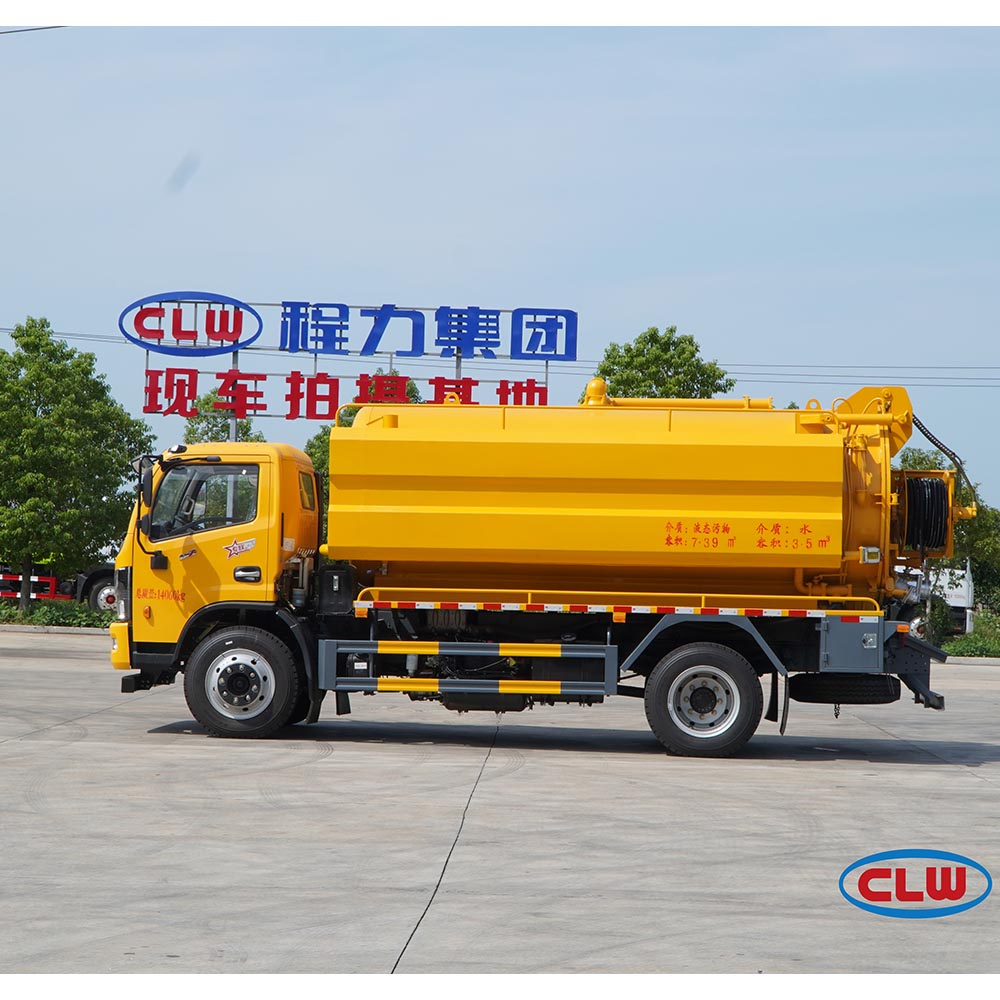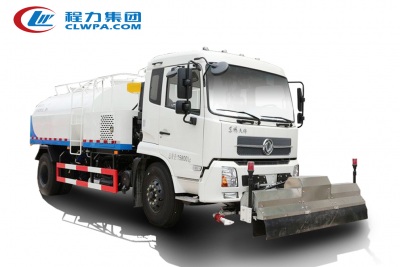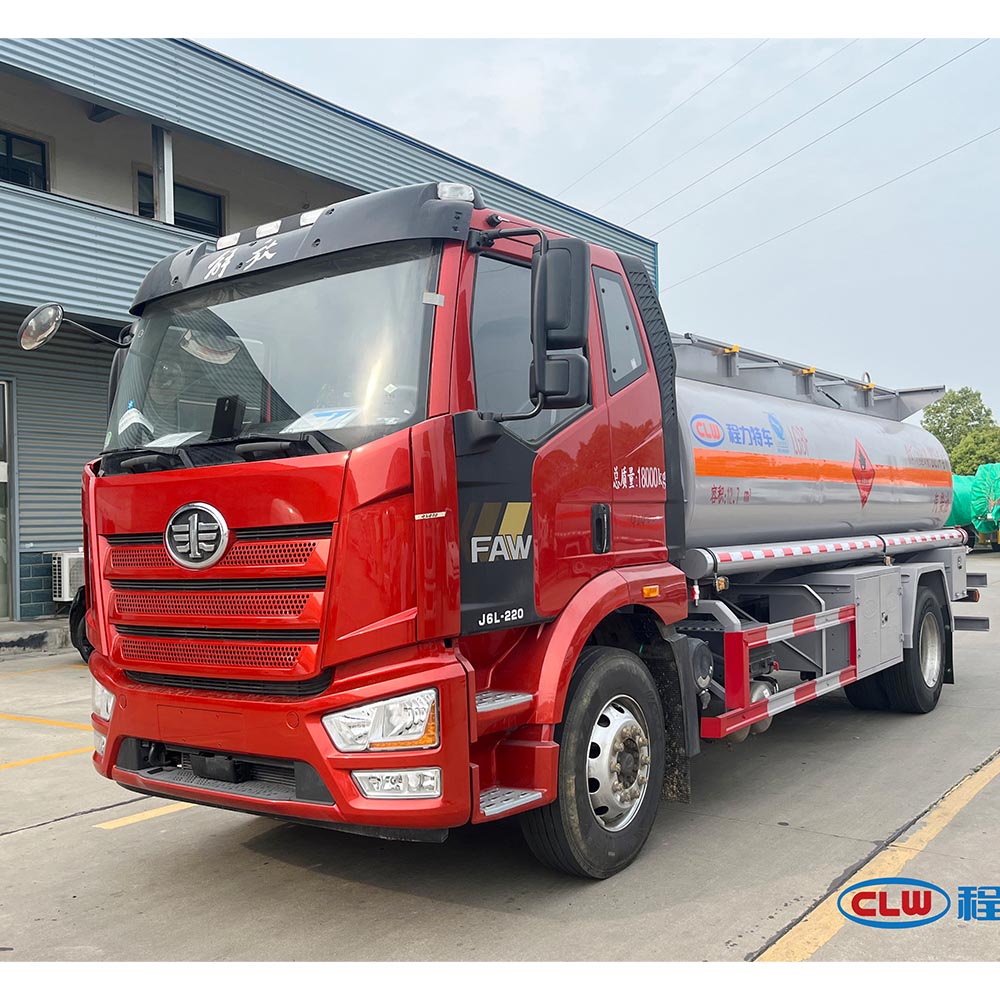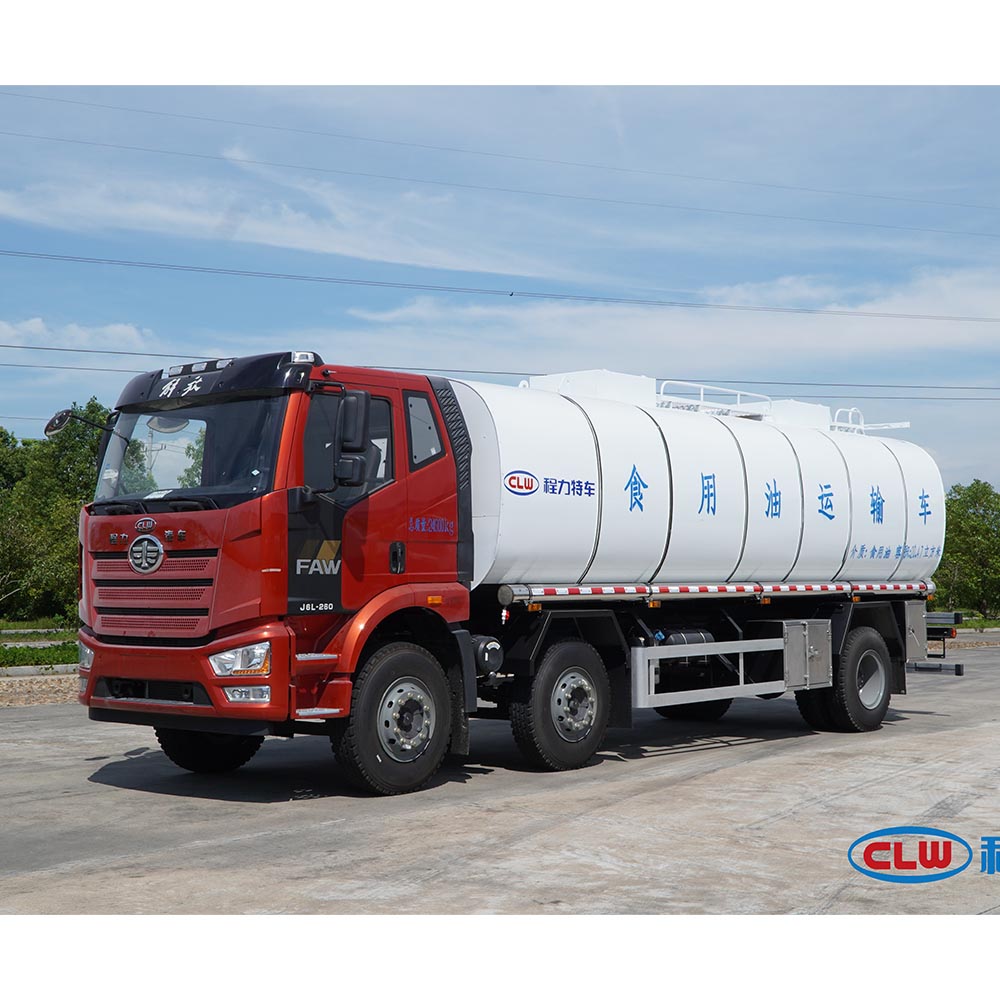-
Chengli Automobile Industrial Park
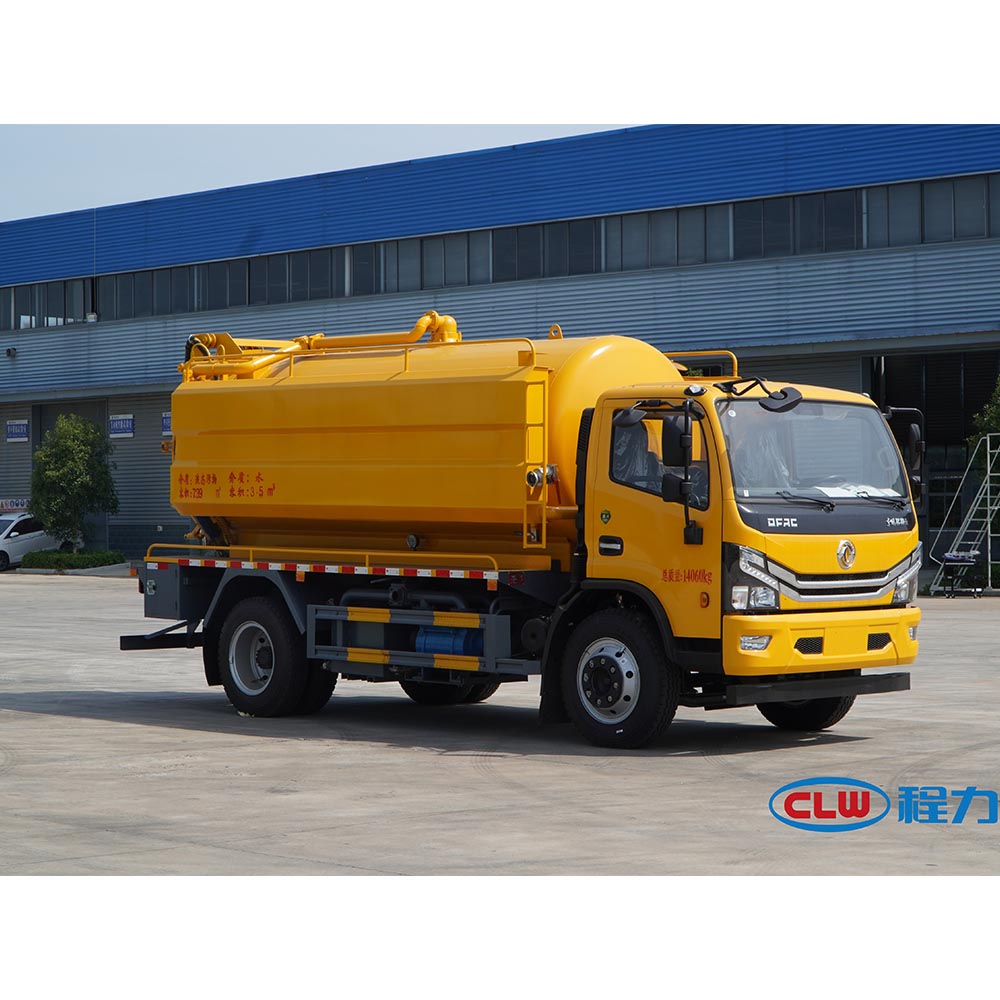
what is a sewage disposal truck? how to work
The Ultimate Guide to Septic Tank Trucks and Why They Are Essential for Modern Waste Management
This article provides a comprehensive overview of septic tank trucks, their crucial role in modern sanitation, and why understanding their operation is vital for various industries. Whether you are in municipal sanitation, construction, or environmental services, this guide offers valuable insights into how these specialized trucks can benefit your operations. Discover the inner workings of septic tank trucks, learn about their diverse applications, and understand why they are indispensable tools for maintaining public health and environmental safety. If you’re looking to optimize your waste management processes, this read is worth your time.
Table of Contents
What is a Septic Tank Truck and How Does It Work?
A septic tank truck, also known as a vacuum truck or sewage truck, is a specialized vehicle designed to collect and transport liquid and solid waste. These trucks are essential tools for maintaining septic systems, which are commonly used in areas without centralized sewer systems. A septic tank truck is primarily used to pump out the contents of septic tanks, removing both liquid waste and solid waste, preventing blockages and ensuring the system’s proper functioning.
The operation of a septic truck involves a powerful vacuum pump that creates suction to extract waste from septic tanks. The pump creates a vacuum, which reduces the pressure inside the tank. This difference in pressure allows the waste to be drawn through a hose into the truck’s storage tank. These trucks are equipped with a powerful vacuum system that can handle various types of waste, including sludge and wastewater. Once the truck’s storage tank is full, the collected waste is transported to a treatment plant or disposal site for proper disposal. This process is crucial for preventing overflows, backups, and environmental contamination.
Septic tank trucks come in various sizes and configurations to handle different volumes of waste. For example, a 15m³ Cleaning & Suction Sewage Truck offers substantial capacity for handling large-scale operations. These vehicles are designed to ensure the waste is securely contained during transport, minimizing the risk of leaks or spills. Advanced models, such as the Chengli CL5180TXCBEV – Pure electric wet and dry sewage suction truck, are engineered for efficient and environmentally friendly waste management. Additionally, trucks can be equipped with features like high-pressure water jets for cleaning and hydro excavation capabilities, making them versatile tools for various applications.
Why Are Septic Tank Trucks Essential for Municipal Sanitation Departments?
Septic tank trucks play a crucial role in maintaining public health and sanitation in municipal settings. They are used to manage waste from septic tanks in residential areas, public restrooms, and other facilities not connected to a central sewer system. Regular septic tank pumping is necessary to prevent overflows and backups, which can lead to significant health hazards and environmental pollution.
Municipal sanitation departments rely on these trucks to ensure that septic systems function correctly and that waste is disposed of properly. This includes scheduled maintenance and emergency response to septic system failures. Septic trucks help keep our communities clean by efficiently removing and transporting waste to treatment facilities. Proper waste management is essential for preventing the spread of diseases and maintaining a clean environment.
Municipalities also use septic tank trucks for cleaning storm drains, catch basins, and other infrastructure. These trucks are equipped with powerful vacuum systems and high-pressure water jets, making them effective for removing debris, sediment, and other obstructions. By preventing blockages in these systems, septic trucks help to reduce the risk of flooding and ensure the proper functioning of drainage systems. Models like the Chengliwei Cleaning and Suction Truck are designed to handle a variety of municipal tasks, including emergency spills and routine maintenance, ensuring that public areas remain safe and clean.
How Do Septic Tank Trucks Benefit Industrial Enterprises?
Industrial enterprises generate large volumes of liquid and solid waste that must be managed properly. Septic tank trucks are essential tools for these businesses, providing efficient and reliable waste removal services. These trucks can handle a wide range of industrial waste, including hazardous materials, ensuring that they are collected and transported safely to treatment facilities.
In industries such as manufacturing, chemical processing, and food production, septic trucks are used to clean and maintain storage tanks, process vessels, and other equipment. The powerful vacuum pump and specialized tools on these trucks allow them to remove sludge, sediment, and other residues that can accumulate over time. This helps to prevent equipment failures, maintain production efficiency, and comply with environmental regulations.
Industrial enterprises also use septic tank trucks for spill response and cleanup. These trucks can quickly and effectively contain and remove spills of oil, chemicals, and other hazardous substances, minimizing the impact on the environment and preventing costly fines. For example, the Aluminum Alloy Oil Truck 25.5m³ is designed to handle large-scale industrial waste management tasks efficiently. The versatility and reliability of septic tank trucks make them indispensable assets for industrial operations.
What Role Do Septic Tank Trucks Play in Construction and Demolition?
Construction and demolition sites produce a significant amount of waste, including concrete, debris, and liquid waste. Septic tank trucks are vital for managing this waste efficiently and responsibly. These trucks are used to pump out portable toilets, holding tanks, and other temporary sanitation facilities on construction sites.
Septic trucks also play a role in hydro excavation, a non-destructive method of digging using high-pressure water and a vacuum system. This technique is used to expose underground utilities safely, preventing damage to pipes and cables. Hydro excavation trucks, a specialized type of vacuum truck, are commonly used in construction projects to excavate trenches, potholes, and other openings with precision.
Additionally, septic tank trucks are used to remove and transport liquid waste generated during construction activities, such as concrete washout, drilling fluids, and other byproducts. By ensuring the proper disposal of this waste, construction companies can comply with environmental regulations and laws and avoid potential fines and penalties. Septic tank trucks help to keep construction sites clean and safe, minimizing the environmental impact of these activities.
How Can Environmental Service Companies Utilize Septic Tank Trucks?
Environmental service companies rely on septic tank trucks for a variety of tasks related to waste management and environmental protection. These trucks are used to collect and transport hazardous and non-hazardous waste from various sources, ensuring that it is disposed of safely and in compliance with regulations.
One of the primary uses of septic tank trucks in environmental services is for spill response and cleanup. These trucks can quickly and effectively contain and remove spills of oil, chemicals, and other pollutants, preventing them from contaminating soil and water sources. The powerful vacuum system on these trucks allows them to recover spilled materials efficiently, minimizing the environmental impact.
Environmental service companies also use septic tank trucks for cleaning and maintaining storage tanks, lagoons, and other waste containment systems. Regular cleaning and maintenance help to prevent leaks, overflows, and other environmental incidents. Septic trucks are also used for the transportation of waste to treatment facilities, ensuring that it is processed and disposed of properly.
Why Are Septic Tank Trucks Crucial for Pipeline Cleaning and Maintenance?
Pipeline cleaning and maintenance are essential for ensuring the proper functioning of sewer systems, industrial pipelines, and other infrastructure. Septic tank trucks, particularly combination trucks that combine vacuum and high-pressure water jetting capabilities, are crucial tools for these tasks.
These trucks are used to remove blockages, sediment, and other debris from pipelines, preventing backups and overflows. The powerful vacuum system on these trucks can extract waste from the septic lines, while the high-pressure water jets can break up and flush away stubborn obstructions. Regular pipeline cleaning helps to maintain flow capacity, prevent damage to pipes, and extend the lifespan of the infrastructure.
Pipeline cleaning and maintenance companies also use septic tank trucks for inspecting pipelines using CCTV cameras and other diagnostic tools. By identifying potential problems early, such as cracks, leaks, or corrosion, these companies can perform timely repairs and prevent costly failures. Septic tank trucks are essential for maintaining the integrity and reliability of pipeline systems.
What Are the Applications of Septic Tank Trucks in Agriculture?
In the agricultural sector, septic tank trucks have several important applications. These trucks are used to manage and transport liquid manure, a valuable fertilizer for crops. Septic trucks can pump manure from storage pits and lagoons and transport it to fields for application.
Septic tank trucks are also used for cleaning and maintaining livestock holding tanks and other agricultural waste containment systems. Regular cleaning helps to prevent the buildup of harmful bacteria and pathogens, promoting animal health and preventing the spread of diseases. Additionally, septic trucks can be used to remove and dispose of other agricultural waste, such as wastewater from processing facilities and wash water from equipment.
By ensuring the proper disposal of agricultural waste, septic tank trucks help to protect the environment and comply with regulations. These trucks play a crucial role in sustainable agriculture, helping farmers to manage waste responsibly and utilize resources efficiently.
How Do Septic Tank Trucks Support Oil and Gas Field Services?
Oil and gas field services rely heavily on septic tank trucks for managing and transporting various types of waste generated during drilling, production, and other operations. These trucks are used to collect and transport drilling mud, produced water, flowback water, and other liquid waste.
Septic trucks are also used for cleaning and maintaining storage tanks, frac tanks, and other equipment used in oil and gas operations. The powerful vacuum system and specialized tools on these trucks allow them to remove sludge, sediment, and other residues that can accumulate over time. This helps to prevent equipment failures, maintain production efficiency, and comply with environmental regulations.
Oil and gas field service companies also use septic tank trucks for spill response and cleanup. These trucks can quickly and effectively contain and remove spills of oil, chemicals, and other hazardous substances, minimizing the impact on the environment and preventing costly fines. The versatility and reliability of septic tank trucks make them indispensable assets for oil and gas operations.
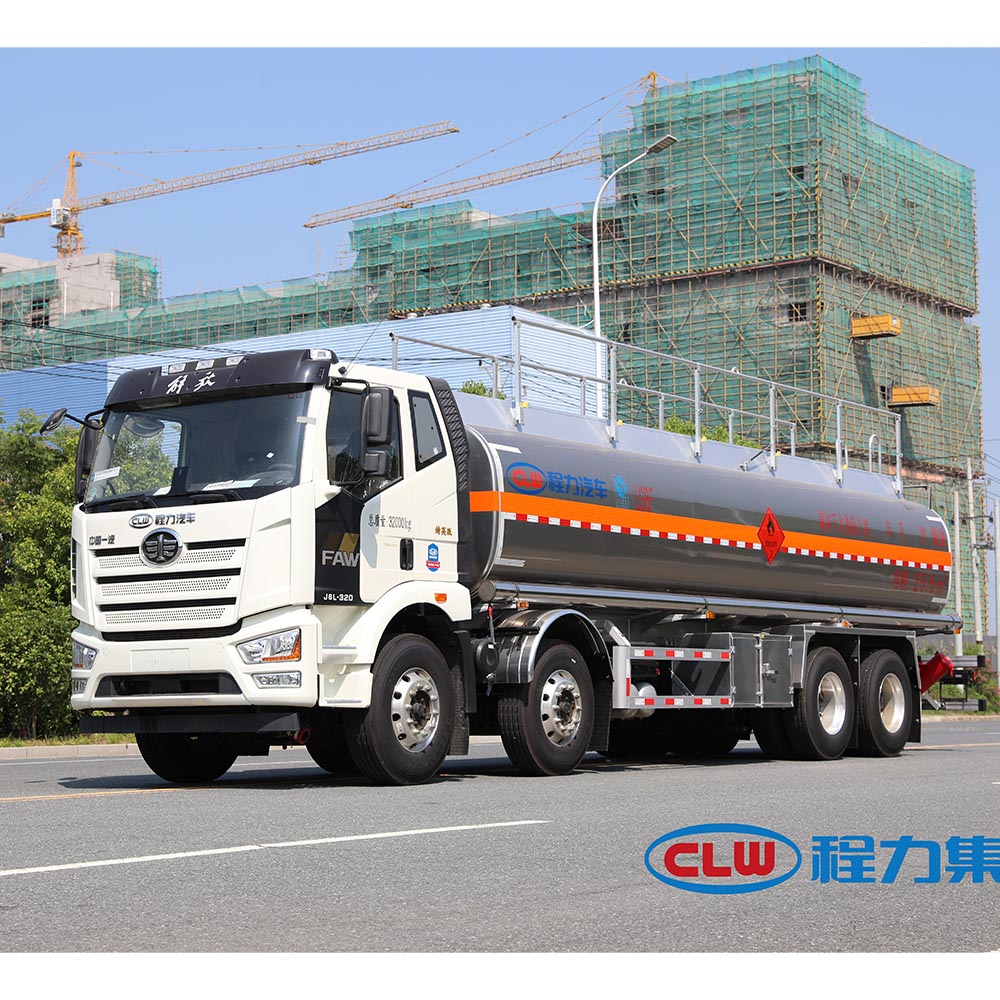
What is the Importance of Septic Tank Trucks for Airports, Ports, and Harbors?
Airports, ports, and harbors generate significant amounts of liquid and solid waste that must be managed properly. Septic tank trucks are essential tools for these facilities, providing efficient and reliable waste removal services. These trucks are used to pump out holding tanks, portable toilets, and other sanitation facilities, ensuring that waste is collected and transported safely to treatment facilities.
At airports, septic trucks are used to service aircraft lavatories, collecting and disposing of wastewater in compliance with strict regulations. These trucks are also used for cleaning and maintaining drainage systems, catch basins, and other infrastructure, preventing blockages and ensuring proper functioning.
Ports and harbors use septic tank trucks for managing waste from ships, including sewage, greywater, and other liquid waste. These trucks are also used for cleaning and maintaining shore-based sanitation facilities, such as restrooms and holding tanks. By ensuring the proper disposal of waste, airports, ports, and harbors can protect the environment and comply with regulations.
Why Should Equipment Rental Companies Invest in Septic Tank Trucks?
Equipment rental companies can benefit significantly from adding septic tank trucks to their fleet. These trucks are in high demand across various industries, including construction, environmental services, municipal sanitation, and more. By offering septic tank truck rentals, equipment rental companies can tap into a lucrative market and provide valuable services to their clients.
Septic tank trucks are specialized vehicles that require significant investment, making them an attractive option for rental. Many businesses prefer to rent these trucks for specific projects or on an as-needed basis rather than purchasing them outright. This allows them to access the equipment they need without the high upfront costs and ongoing maintenance expenses.
Offering septic tank truck rentals also allows equipment rental companies to diversify their services and attract a broader range of clients. By providing well-maintained and reliable trucks, these companies can build a reputation for quality and customer satisfaction, leading to repeat business and referrals.
Why is Regular Maintenance of Septic Tank Trucks Important?
Regular maintenance is essential for ensuring the reliable operation and longevity of septic tank trucks. These trucks are complex pieces of equipment with many moving parts that are subject to wear and tear. Proper maintenance helps to prevent breakdowns, reduce downtime, and extend the lifespan of the truck.
One of the most critical aspects of septic tank truck maintenance is the vacuum pump. The power of the vacuum pump is essential for the truck’s ability to collect and transport waste efficiently. Regular inspection and servicing of the pump help to ensure that it operates at peak performance.
Other essential maintenance tasks include checking and replacing hoses, valves, and seals; inspecting the storage tank for leaks or damage; and ensuring that all safety systems are functioning correctly. Regular maintenance also helps to prevent costly repairs and ensures that the truck complies with environmental regulations and laws.
What Are Some Key Components of Septic Tank Trucks?
Septic tank trucks are complex vehicles with several key components that work together to collect and transport waste. Understanding these components is essential for operators and maintenance personnel.
- Vacuum Pump: The vacuum pump is the heart of the septic tank truck. It creates the suction needed to draw waste into the truck’s storage tank. Different types of vacuum pumps are available, including rotary vane pumps, lobe pumps, and liquid ring pumps. The choice of pump depends on the specific application and the type of waste being collected. The Chengli Brand – Dongfeng D7 Intelligent Asphalt Paver is an example of a vehicle that uses advanced pump technology to deliver superior performance. It’s essential to understand the power of the vacuum pump to ensure it can handle the specific demands of your waste management tasks.
- Storage Tank: The storage tank is where the collected waste is stored during transport. Tanks are typically made of steel or aluminum and are designed to withstand the pressure and corrosive nature of the waste. The size of the tank varies depending on the truck’s capacity, ranging from a few hundred gallons to several thousand gallons. The tank is equipped with valves and fittings for filling, emptying, and cleaning.
- Hose: The hose is used to connect the truck to the septic tank or other waste source. Hoses are typically made of durable, flexible materials that can withstand the suction and pressure of the vacuum system. The suction hose is connected to the inlet of the vacuum pump, and the discharge hose is used to empty the tank at the disposal site. Choosing the right hose and maintaining it properly is crucial for the efficient operation of the truck.
- Valves: Valves are used to control the flow of waste into and out of the storage tank. Key valves include the inlet valve, which allows waste to enter the tank; the outlet valve, which is used to discharge waste; and the pressure relief valve, which prevents over-pressurization of the tank. Proper operation and maintenance of valves are essential for safety and efficiency. Keeping the pressure inside the tank at optimal levels is crucial for the truck’s performance.
How to Choose the Right Septic Tank Truck for Your Needs?
Choosing the right septic tank truck depends on several factors, including the type of waste being collected, the volume of waste, the frequency of use, and the specific requirements of the application. Here are some key considerations:
- Capacity: The capacity of the storage tank is one of the most important factors. Trucks with larger tanks can collect more waste per trip, reducing the number of trips to the disposal site. However, larger trucks may be more challenging to maneuver in tight spaces.
- Vacuum Pump: The type and power of the vacuum pump are also critical. For heavy-duty applications, such as industrial waste or thick sludge, a powerful vacuum pump is necessary. Consider the type of waste being collected and choose a pump that can handle it efficiently.
- Features: Septic tank trucks can be equipped with various features, such as high-pressure water jets for cleaning, hydro excavation capabilities, and advanced filtration systems. Consider the specific tasks you need to perform and choose a truck with the appropriate features.
- Brand and Reliability: Choose a reputable brand known for manufacturing reliable and durable trucks. Research different models and read reviews from other users to make an informed decision. A truck that breaks down frequently can lead to costly downtime and lost revenue.
FAQs
What is the typical lifespan of a septic tank truck?
With proper maintenance, a septic tank truck can last for 10-15 years or more. Regular servicing of the vacuum pump, tank, and other components is crucial for extending the truck’s lifespan.
How often should a septic tank be pumped?
A residential septic tank should typically be pumped every 3-5 years, depending on the size of the tank and the number of people using it. Commercial tanks may need to be pumped more frequently.
What are the signs that a septic system is failing?
Signs of a failing septic system include slow drains, gurgling sounds in the plumbing, sewage backups, foul odors, and unusually green grass over the drain field. If you notice any of these signs, it’s important to have the system inspected and serviced by a professional.
Can septic tank trucks handle hazardous waste?
Some septic tank trucks are designed to handle hazardous waste, but it’s essential to choose a truck that is specifically rated and equipped for this purpose. Hazardous waste requires special handling and disposal procedures to comply with environmental regulations.
What is the difference between a vacuum truck and a pumper truck?
While both vacuum trucks and pumper trucks are used to collect and transport liquid waste, a pumper truck typically refers to a truck specifically designed for pumping septic tanks. Vacuum trucks may have broader applications, including industrial cleaning, hydro excavation, and spill response.
What is a combination truck and how does it differ from a standard septic tank truck?
A combination truck is a specialized vehicle that combines the capabilities of a vacuum truck with a high-pressure water jetting system. This allows it to perform both vacuuming and cleaning tasks, making it ideal for pipeline cleaning, sewer maintenance, and other applications where both suction and water pressure are needed. Standard septic tank trucks are primarily designed for septic tank pumping and may not have the added functionality of a high-pressure water jet.
Conclusion
Here are the most important things to remember about septic tank trucks:
- Septic tank trucks are essential tools for modern waste management, playing a crucial role in maintaining public health and environmental safety.
- These trucks are used across various industries, including municipal sanitation, industrial enterprises, construction, environmental services, pipeline cleaning, agriculture, oil and gas, and more.
- Regular maintenance is crucial for ensuring the reliable operation and longevity of septic tank trucks.
- Choosing the right septic tank truck depends on factors such as capacity, vacuum pump type, features, and brand reliability.
- Septic tank trucks are a valuable investment for equipment rental companies, providing a high-demand service across multiple sectors.
- Understanding the key components of septic tank trucks, such as the vacuum pump, storage tank, hose, and valves, is essential for operators and maintenance personnel.
By understanding the importance and versatility of septic tank trucks, businesses and municipalities can make informed decisions about their waste management strategies. These trucks are not just vehicles; they are critical infrastructure that helps keep our communities clean, safe, and healthy.
